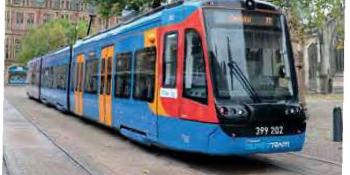Track manufacturing is specialised work, which goes largely unseen. Who are the companies, what are their challenges, how have products changed and how stable is this supply chain? PETER HEUBECK reviews the sector’s work supplying Network Rail
RAIL
After the closure of Cargo Fleet and Glengarnock, BSC Workington was, by 1985, the UK’s only rail rolling mill. Skilled staff produced high quality products and BSC also had healthy export sales. However, problems loomed. Having ceased steel-making in 1974, the plant relied on the costly transport of steel blooms from Teesside. Site constraints limited rail rolling to 120 feet and prevented upgrading to make the longer rails desired by track engineers (even good factory welds form unwanted discontinuities in the rail). The plant’s relative remoteness increased distribution costs.
To solve these problems, and as part of a new contract with Network Rail, new owner Corus in 2006 converted the medium section mill at Scunthorpe steelworks to roll rails up to 120 metres long, with a high-tech rail finishing centre built alongside. NR could then buy rail in 216-metre ‘strings’, incorporating only one weld. From Scunthorpe, rail trains easily access NR’s distribut…


